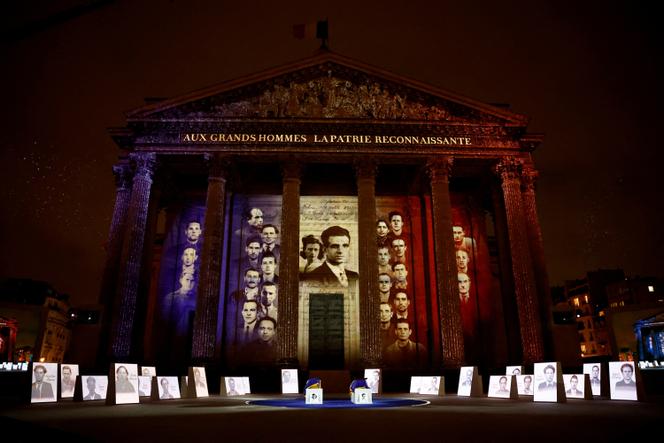


The sound of "Un rêve à l'horizon" ("A Dream on the Horizon"), composed by Armenian oboe virtuoso Rostom Khachikian, cut through the curtains of rain and gusts of wind on Wednesday, February 21, at Paris' Panthéon, where a ceremony was held to commemorate the entry of Missak Manouchian, his wife Mélinée, and with them a group of communist resistant fighters, most of them foreigners and many of them Jews. Eighty years to the day after their execution, France has turned these martyrs into heroes. Armenians, anti-fascist Italians, anti-Franco Spaniards, Poles, Hungarians, a Romanian woman, they were "French people of hope," as President Emmanuel Macron said.
For Manouchian and his group, it was a dream come true. Or a wish, the one of a 37-year-old man about to die. "I am sure that the French people and all freedom fighters will know how to honor our memory with dignity," wrote "Manouche" to his beloved Mélinée from prison before his execution.
It was also the wish and dream of historians, descendants of these fighters and intellectuals. Announced on June 18, 2023, the day of Charles de Gaulle's speech marking the beginning of the French Resistance in the Second World War, the ceremony that lasted over two hours had been carefully prepared. The couple entered the Panthéon, but it is indeed the communist and foreign resistance fighters that the country celebrated on Wednesday.
The brightly lit Panthéon dominated the square with its columns. A narrow white carpet in front of the peristyle descended on the few steps before opening out onto the square, where two supports, set against a blue background, awaited the coffins. The singer Patrick Bruel was given the task of reading Manouchian's last letter to his wife. A letter by a soldier, a lover and a poet, who glimpsed victory, aware that he would not be able to savor it. "Happiness to those who will survive us and taste the sweetness of tomorrow's Freedom and Peace." He was a man who proclaimed he had "no hatred against the German people or anyone else," who forgave like a Christian – "except for the one who betrayed us to buy his own skin and those who sold us out." A brave man who recommended settling his debts in a poignant and prosaic postscript.
In a strong, impeccable voice, actor-director Serge Avédikian listed the names of Manouchian and his 22 comrades, "because your names are difficult to pronounce," wrote Aragon in his poem L'Affiche rouge. A reference to a Nazi propaganda poster that turned Communist and foreign resistance fighters into an "army of crime."
You have 65.88% of this article left to read. The rest is for subscribers only.
